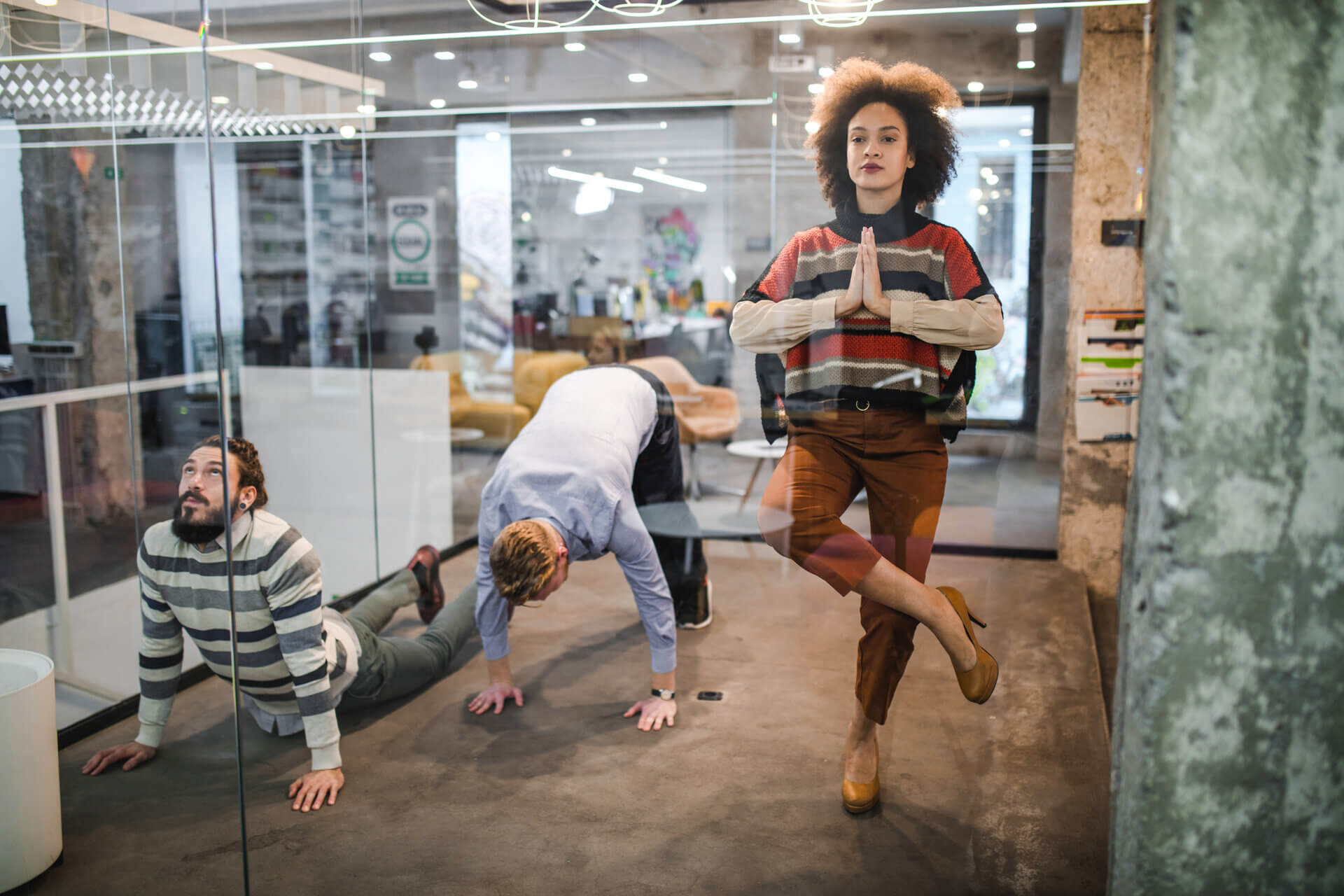



Why you should get your team moving
26 October 2023
Teamwork can look different in the spheres of our life.
Our contribution and fulfilment in our role can inherently change the way we play – both on and off the field.
While work may fall loosely into the broad category of group activities, it is not, nor should it be, our only source of group or community connection.
Strengthening our connections with others and ourselves can greatly improve our mental wellbeing.
Everyone, not just elite athletes are eligible to enjoy these benefits.
Getting moving has numerous physical and mental benefits, but there are benefits which we may not have fully realised.
Joining your team for some on-field/court bonding time not only gives you a break from the daily grind together but is an ideal place for new potential to flourish.
A different perspective on unity
CEO of Kronologic Trey Allison favours describing his team as being like professional sports team, over the well-used phrase ‘like a family’.
His sentiment conveys the same sincerity and comradeship required of high-performing teams, whether you’re on the field or not.
Being a part of a sports team can add new dimensions of trust and connection, which can help us communicate our needs and navigate different relationships.
“I believe in the transformative power of team exercise. It’s not just about physical health, it’s a mental and social boost too” CEO of Human Psychology Samantha Young said.
“Beyond strengthening our bodies, it strengthens our connections, offers emotional support, and fosters a sense of belonging that extends far beyond the workplace.”
To be happier at work, encourage your employees/team members to prioritise activities that bring joy and fulfilment outside of work.
Venturing into team sports with your colleagues can benefit you in-office performance in some key ways, including:
- Social connectedness – creates a support system outside of the office, connecting on a deeper level with your colleagues, enhancing communication and trust between people of different backgrounds or roles.
- Cohesion – working towards a common goal is at the core of every workplace. On the field, learning to master a set play or aiming for a game win can enhance your confidence.
- Decisiveness – sport is great practice for making decisions under time pressure. It’s also an environment where we can become more accepting of failure as part of life and build resilience.
- Motivation – team sport gives us an extra incentive to be at our best. With less of an individual focus, we attend training and seek to improve our skills for the benefit of our team and the people in it.
- Assurance – over time, you can see your skills blossom and develop. This can be incredibly empowering across many areas of your life. Through discipline and feedback, you are getting to experience the rewards of your efforts.
Sweating it out together
While the benefits of exercise and movement are evident and far-reaching for our minds, not just our bodies.
Exercise plays a crucial role in preventing and managing chronic conditions such as cardiovascular disease and diabetes.
It improves bone and muscle strength, enhances balance and flexibility, and contributes to maintaining a healthy weight.
Getting 30 to 45 minutes of exercise or movement in a day, as recommended by the Australian Government and Heart Foundation – is enough to reduce your risk of heart disease, among many others.
The Black Dog Institute points out that exercise has positive effects on mental wellbeing by reducing symptoms of depression and anxiety, improving mood, and boosting overall cognitive function.
However, there are additional benefits to exercising as part of a team or group in favour of a solo sweat session.
Exercise with a team or group nurturing connection outside of family and work, helping us to find emotional support and a sense of belonging.
If you can find a sport you like, you can reap many benefits through socialisation.
A good few which can benefit you at work, too.
The effect of this socialisation can almost immediately lift your mood and squash stress, simply by having something else to focus on.
Engineer and educator Jaspal Singh highlights some of the other deep-reaching benefits:
- Learning to trust and depend on others
- To accept help, to give help
- To work together towards a common goal
- Commitment to a team
- Doing something fun can also make it easier to establish a regular habit of exercise
- Building your growth mindset
- Improving your resilience through defeat
As a leader, it’s imperative not to presume that workplace leadership seamlessly translates to the field” Head of Consulting for Human Psychology Amanda Pickering said.
“Empowering others to explore and unearth their leadership capabilities through adopting novel roles within the team and through team exercise can be instrumental in nurturing a collective mindset and elevating overall morale.
It’s not just winning that gives your self-esteem and confidence getting a big boost, it’s working towards and achieving goals and improvement through training.
“The experience of coming to terms with defeat can build the resilience and self-awareness necessary to manage academic, social, and physical hurdles” Singh said.
Tips for leaders
- Because you’re a leader in the workplace doesn’t automatically make you a leader on the field – let others explore their potential for leadership and delegating.
- Enjoy becoming a different part of the process – this team experience can provide an opportunity for you to get involved with strategy from a different angle.
- Build team mindset – encourage employees to make some decisions you would usually make or ask them to give feedback on certain things to build their off-field confidence.
- Increase morale – use the shared experience to increase morale on the field by commending people’s strengths and decision making, even when you get defeated. There is silver lining in everything.
- Let go of perfectionism – for yourself and others. Empower your teammates and employees to experiment with new approaches and their ideas on and off the field.
Tips for employees
- Look at group sports close to your workplace, which you could attend after work
- When it comes to picking a sport to try, make the decision together
- Open the invitation to include people you may not have worked closely with before
- Be open to not winning all the time, embracing defeat is part of building resilience
- Building skills takes patience, persistence and practice – with yourself and others
Sources
- Work is not your family – Gloria Chan Parker
- Physical activity and your heart health – Heart Foundation
- Exercise for your mood campaign – Black Dog Institute
- 6 mental health benefits of team sports – Thriveworks
- How playing sports benefits your body and your brain – Leah Lagos and Jaspal Ricky Singh, TED Talk
- 10 tips to help you boost team performance – Harvard Business School
Resources
- Build a tower, build a team – Tom Wujec, TED Talk
- Beyond physical fitness: the benefits of playing team sports – Army & Navy Academy
